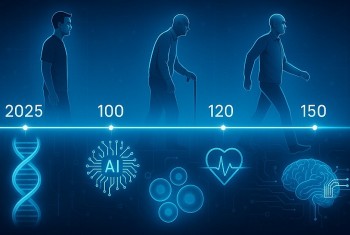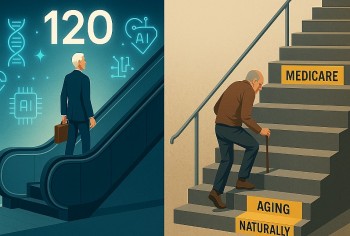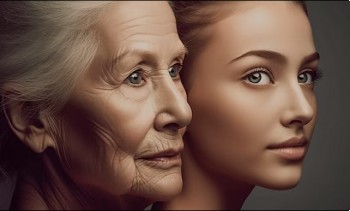Young Blood, Old Hopes: The Ethics and Science Behind Age-Reversal Treatments in the U.S.
 Can China Extend Human Lifespan to 150 Years? Can China Extend Human Lifespan to 150 Years? |
 The Longevity Divide: Will Only the Rich Live to 120? The Longevity Divide: Will Only the Rich Live to 120? |
 The Longevity Economy: How Americans Over 50 Are Funding the Future of Anti-Aging Science The Longevity Economy: How Americans Over 50 Are Funding the Future of Anti-Aging Science |
Across California, Florida, and a handful of other U.S. states, quiet revolutions in longevity medicine are unfolding behind closed doors. In elite wellness clinics and experimental labs, wealthy clients and biohackers are lining up for treatments once reserved for science fiction: infusions of young plasma, stem cell injections, and hormone optimization therapies that promise not just better health—but age reversal.
These interventions are often controversial, loosely regulated, and outrageously expensive. Yet demand is growing. Driven by Silicon Valley moguls, celebrity health influencers, and a generation unwilling to accept aging as inevitable, America’s underground anti-aging movement is thriving.
But does the science support the hype? And what ethical lines are being crossed in the pursuit of immortality?
The Allure of Young Blood: Parabiosis and Plasma Infusions
Few treatments have generated as much buzz—or as much concern—as young blood therapy. Inspired by animal studies involving parabiosis (sewing together the circulatory systems of young and old mice), some clinics have interpreted early results to mean that infusions of plasma from young donors can rejuvenate aging bodies.
What the Science Actually Says
-
In 2014, a Stanford study found that exposing older mice to young plasma improved memory and cognitive function.
-
However, translating this to humans remains speculative. No large, controlled trials have confirmed the same benefits.
-
In 2020, the FDA issued a warning that young plasma infusions were "unproven and potentially harmful."
Underground Clinics and Private Patients
Despite FDA caution, private clinics continue to offer plasma transfusions—often at $8,000 to $15,000 per session.
-
Ambrosia, one such company, briefly halted operations after FDA scrutiny, only to return under a new name.
-
Some clients claim they feel "sharper," "more energetic," or report improved biomarkers.
But without standardized protocols or oversight, critics worry that desperate patients are being exploited with high-priced placebo effects.
Stem Cells: Promise Meets Legal Grey Zone
Stem cell therapy is another cornerstone of age-reversal clinics. These cells, harvested from bone marrow, fat tissue, or umbilical cords, are thought to regenerate damaged tissue, reduce inflammation, and even boost organ function.
The Regulatory Puzzle
-
In the U.S., FDA approval is required for most uses of stem cells outside of bone marrow transplants.
-
However, many clinics argue that since they use a patient’s own cells, their procedures don’t need approval.
-
This loophole has enabled a market of over 700 unregulated stem cell clinics, many targeting aging consumers.
Patient Testimonials and Risks
Linda Garcia, 66, paid $20,000 for a stem cell injection into her knees and spine at a Florida clinic. "Within weeks, my pain dropped dramatically," she says. But others report no benefit—or worse, serious complications like infections, tissue damage, and even blindness in eye-related procedures.
Hormone Optimization and Biohacking
For those not ready for infusions or injections, hormone therapy is another popular frontier. Clinics offer testosterone, estrogen, growth hormone, DHEA, and melatonin in customized bioidentical regimens designed to "restore youth."
What Experts Say
-
Some hormone levels do naturally decline with age.
-
But artificially increasing them comes with risks: heart disease, cancer, stroke.
-
Dr. Barbara Shapiro, a geriatric endocrinologist at Johns Hopkins, warns: "We still don’t understand the long-term effects of many so-called 'optimization' protocols."
The Bryan Johnson Effect
Entrepreneur Bryan Johnson has become a poster child for extreme biohacking, spending over $2 million per year on treatments to reduce his biological age. His regimen includes hormone tracking, plasma transfusions (from his teenage son), caloric restriction, and sleep optimization.
He’s polarizing—some see him as a pioneer, others as a warning sign of tech-fueled hubris.
The Ethics: Whose Blood, Whose Benefit?
Even if some treatments prove effective, deep ethical questions remain:
-
Plasma sourcing: Are young plasma donors (often college students) compensated fairly? Are they being exploited?
-
Access: These therapies are mostly available to the rich. Is longevity becoming a privilege for the elite?
-
Informed consent: Many patients undergo these therapies without full understanding of risks.
-
Medical integrity: Are doctors crossing lines by offering treatments without evidence or FDA approval?
Dr. Anita Patel, a bioethicist at NYU, says: "There’s a real danger that we’re turning human rejuvenation into a market-driven gold rush. And that’s rarely good for science or society."
Inside the Clinics: What’s Actually Happening?
Many longevity clinics offer full-body diagnostics, executive-level bloodwork, and AI-based biomarker tracking. A few go further:
-
Monthly plasma infusions
-
NAD+ boosters for mitochondrial health
-
Peptide therapy for collagen and tissue repair
-
Hyperbaric oxygen chambers
Prices range from $2,000/month memberships to six-figure longevity programs. Most don’t accept insurance.
Patients describe the atmosphere as futuristic and exclusive. "It’s like checking into a luxury hotel run by scientists," one client said of his experience at a Los Angeles clinic.
The Legal Future: Will Regulation Catch Up?
Regulators are increasingly pressured to intervene:
-
The FDA has begun sending warning letters to clinics and suppliers.
-
State medical boards are investigating doctors offering unapproved therapies.
-
New legislation is being discussed to clarify the boundary between innovation and medical recklessness.
Yet enforcement is uneven, and the market continues to grow, fueled by consumer demand and Silicon Valley capital.Conclusion: Hope, Hype, and What Comes Next
The dream of reversing aging is as old as humanity itself. But today, it is colliding with real science, emerging tech, and powerful market forces.
For Americans over 50, these therapies are both tantalizing and troubling. Are they the first steps toward a longer, healthier life—or expensive illusions preying on hope and fear?
While some interventions show early promise, many remain unproven or unregulated. Until science catches up, the best investment in aging may still be the basics: exercise, nutrition, sleep, community, and routine medical care.
Still, the rise of anti-aging clinics, young blood infusions, and stem cell markets is reshaping the way we think about age itself. One thing is clear: the question isn’t just whether we can turn back the clock—but who gets to, and at what cost.
FAQs
Is young blood therapy legal in the U.S.?
It is not illegal, but it's also not FDA
 |
| Young blood therapy |
-approved. Clinics offering it are operating in a regulatory grey area.
Does young plasma infusion work?
In mice, yes. In humans, evidence is limited and inconclusive. The FDA warns against assuming benefits.
Are stem cell therapies for aging approved?
Only a few are FDA-approved. Most anti-aging uses are experimental or unregulated.
What are the risks of hormone optimization?
Increased risk of cardiovascular issues, cancer, and endocrine disruption if misused.
Should I try these therapies?
Speak to a licensed physician. Be wary of clinics that promise results without clinical evidence. Understand the risks, costs, and legal status first.
 Ranking the Longevity of 12 Zodiac Signs - Who is Forever Young? Ranking the Longevity of 12 Zodiac Signs - Who is Forever Young? When looking at the ranking of 12 zodiac signs of longevity, you will realize that no one is naturally beautiful, it is the result of ... |
 Top 10 Best Magic Foods That Can Help You Live Longer Top 10 Best Magic Foods That Can Help You Live Longer Eating and diets can play important roles in your healthy life and longevity. |
 10 Longevity Secrets of the Japanese People 10 Longevity Secrets of the Japanese People Why do the Japanese have the world's longest life expectancy? The Japanese live long lives because of their healthy eating habits, which include eating fish, ... |
 Top 5 Superfoods for Japanese People to Live Longer Top 5 Superfoods for Japanese People to Live Longer A lot of Japanese foods are regarded as superfoods because of their rich nutritional content and subtle flavor. |
 The Facial Features Reveal Your Short Lifespan or Longevity, According to Physiognomy/Science The Facial Features Reveal Your Short Lifespan or Longevity, According to Physiognomy/Science After centuries of research, Eastern physiognomists have identified the facial characteristics of both long- and short-lived people. |
 Who is Ethel Caterham? The Extraordinary Life of the World’s Oldest Living Person Who is Ethel Caterham? The Extraordinary Life of the World’s Oldest Living Person As of May 2025, Ethel Caterham is officially recognized as the oldest living person in the world, a title awarded by longevity database LongeviQuest. At ... |


























